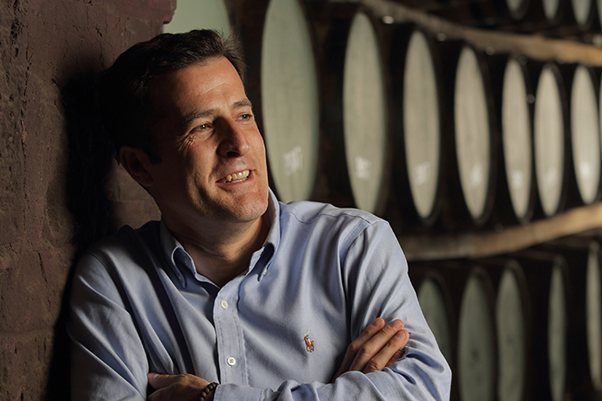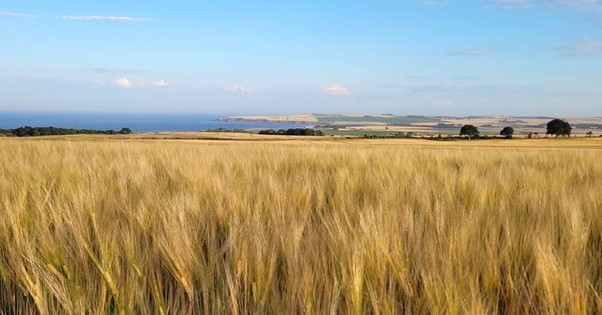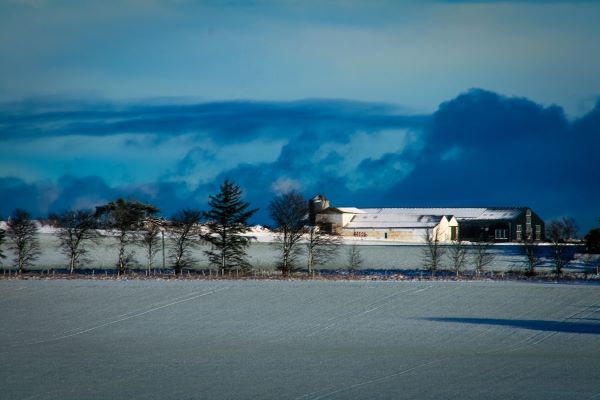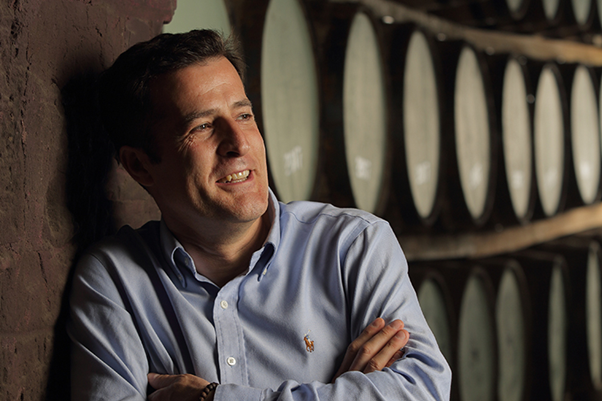Grain to Glass – Part 1
In the first of a new series on the drink's supply chain from grain to glass, Ron Emler talks to farmer-turned-distiller, John Stirling of Arbikie about barley and the challenges of supplying the Scotch whisky industry …
It all starts with barley. By law, Scotch whisky must be distilled from cereal, yeast and water, nothing else, while for malts the grain must be entirely malted barley.
Scotland itself is a prime source of cereals, barley especially. It is blessed by the Jet Stream which generates mild winters, wet springs and long, relatively sunny days through summer up to the harvest.
At the same time the Gulf Stream constantly brings warmer water towards western Europe, with the result that air temperatures over the UK are a few degrees higher than they would be otherwise.
Together they create the temperate climate cherished by farmers like John Stirling who farms the family's Arbikie estate, near Montrose. His 1,000 acres yields about 2,000 tons of malting barley a year, ranking him among the larger growers in Scotland.
"We are in Angus, a prime area for growing cereals. It's one of the better places for growing in Scotland", says John.

Just under half his barley is sold into the malting market. The remainder is used in Arbikie's own distillery where the Stirling's create a ground-to-glass range of whiskies including the first Scottish rye whisky for almost 200 years, as well as vodka and gin.
This gives them a pretty unique perspective, being able to view the grain as both grower and distiller.
Spring barley is predominant. "When you're basically growing for malting barley, virtually 95% plus is spring barley. But we are about to trial a winter barley," John says. "Some growers in England are also trying it."
"This coming year could be interesting because it has been exceptionally good for winter crops," he adds, mentioning all the oil seed rape and wheat that has been planted. Whereas he predicts the tonnage of malting spring barley "will be down substantially."
It is all a question of returns. "If you can get winter crops, your returns from wheat are much more consistent and you get a bigger tonnage, which is worth more despite the average price for barley being about £30 a ton above that for wheat."

"In addition, you don't risk [your barley] being rejected for high nitrogen content or whatever."
Over the past year the price of wheat has gone down from around £278 to about £185. And barley prices have fallen by the same proportion.
That, says John, is why he fears a crunch looming for the Scotch Whisky industry.
While the major distillers are expanding capacity by building newer and bigger facilities to lay down spirit to meet the growing demand they predict for 10 years hence, the number of acres under barley is shrinking because farmers have not been able to recoup their increased costs.
At one stage during coronavirus pandemic the price of nitrogen, for instance, soared from £280 to £900 a ton. It has fallen back since, but prices achieved in the market for malting barley have not kept pace with the costs of production.
"I was speaking to a tax accountant recently", says John, "and I find it really depressing that he said that if you're a cereal farmer in Scotland, it is almost now impossible to make a profit or a living."
"Today the cost of farming and producing roughly break even, and there's definitely been a downward trend in malting barley."
"It's certainly true of myself. We try to grow anything but barley because the returns are poor. And that's a sad state of affairs for farming and the industry in Scotland in particular."
"I think there will come a tipping point, whether that's this year, or in the next few years, where someone's going to wake up and go, 'Oh my God! All what's produced in Scotland is nowhere near where it should be because of the way we have been treated. Not just the farmers but the whole supply chain'."
As in any manufacturing process, producers seek to keep their costs low and it is common for distillers to import grain from Europe and Canada; in the past it was shipped from Australia if the price was advantageous.
There are even rumours of pre-malted barley arriving in Scottish ports.
While legal, importing the grain creates a potential image dilemma for Scotch. Its unique identity is protected by trade agreements and treaties around the world in geographies as diverse as the EU and the USA.
The Scotch Whisky Association spends huge sums and countless hours of legal effort each year to protect the Scottish heritage of the spirit to enhance its desirability to the global consumer.
Yet, argue some farmers, if the prime raw ingredient for single malt Scotch whisky does not come from Scotland, then that must undermine its provenance and cachet.
"When we talk about the provenance of Scotch whisky, the minimum you should have is where your grain is coming from on the label," says John."You want it to come from Canada? Fine. But at least say so."
Others question how importing barley squares with those green credentials loudly trumpeted by distillers. There are raised eyebrows as well about the carbon footprint generated by some grain being transported to England for malting before returning to Scotland for distilling.

Many barley farmers prefer to sell into the market rather than direct to the big distillers even though prices for a long-term contract can be more attractive.
Those who deal through the maltsters remain their own masters and retain flexibility over the crops they grow but a new factor is coming into play.
To burnish their "greenness" there is an increasing incidence of distillers asking for crops to be produced in a particular manner.
"It's inevitable," says John. "The biggest effect you can have on the industry's carbon footprint is the way in which barley is farmed and malt produced. They might say 'We want to change the specifications, we want a little bit less of this type of farming and a lot of fertiliser' but to do that they will need to pay for it."
"Look what's happened is in the supermarkets drive for cheaper food. Farming has become Big in terms of machinery, in terms of size, in terms of blanket spraying, in terms of blanket fertiliser to survive and to produce the cheapest food as possible."
But the Stirlings are bucking that trend at Arbikie.
"We grow our own crops, use our own water and grow our own juniper and botanicals. We are expanding our use of solar energy. Our primary waste products, where possible, are recycled as cattle feed or used as a natural fertiliser. Our distilling from start to finish uses negligible 'food miles' for its production" says John.

Ron Emler is a financial journalist who has observed the drinks industry for 50 years. Following a career on The Times and the Sunday Telegraph, he is consultant City Editor at The Drinks Business.
